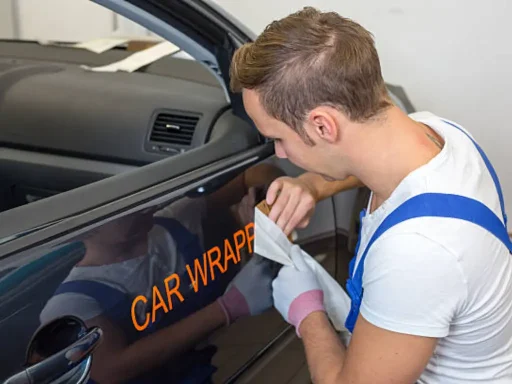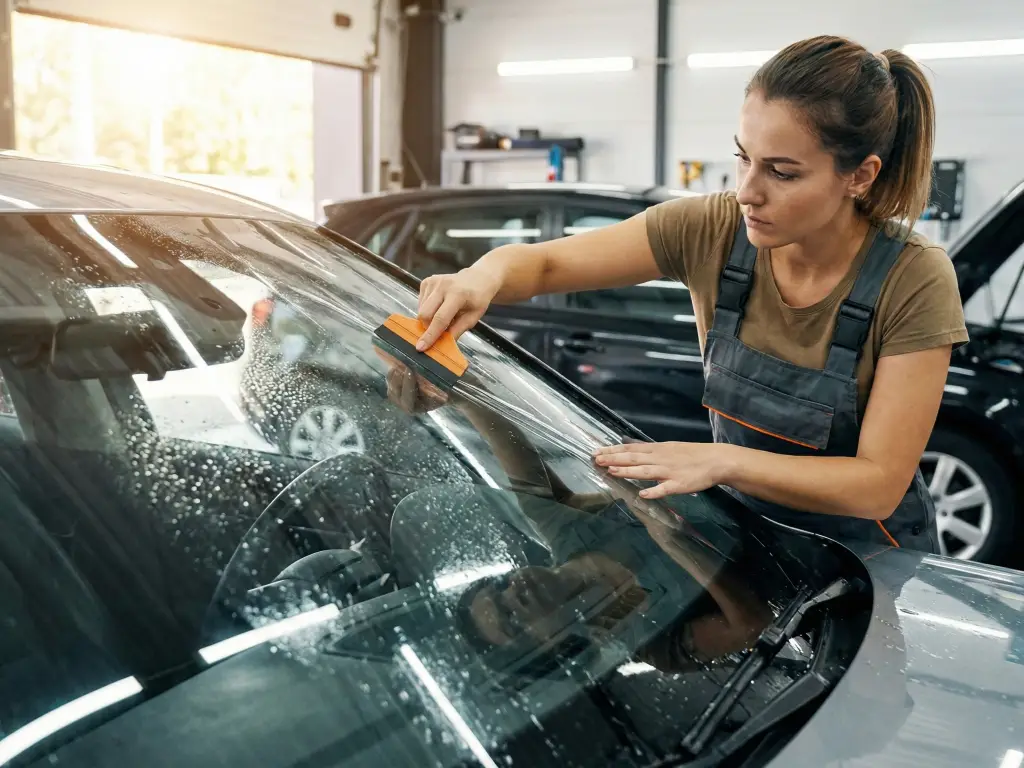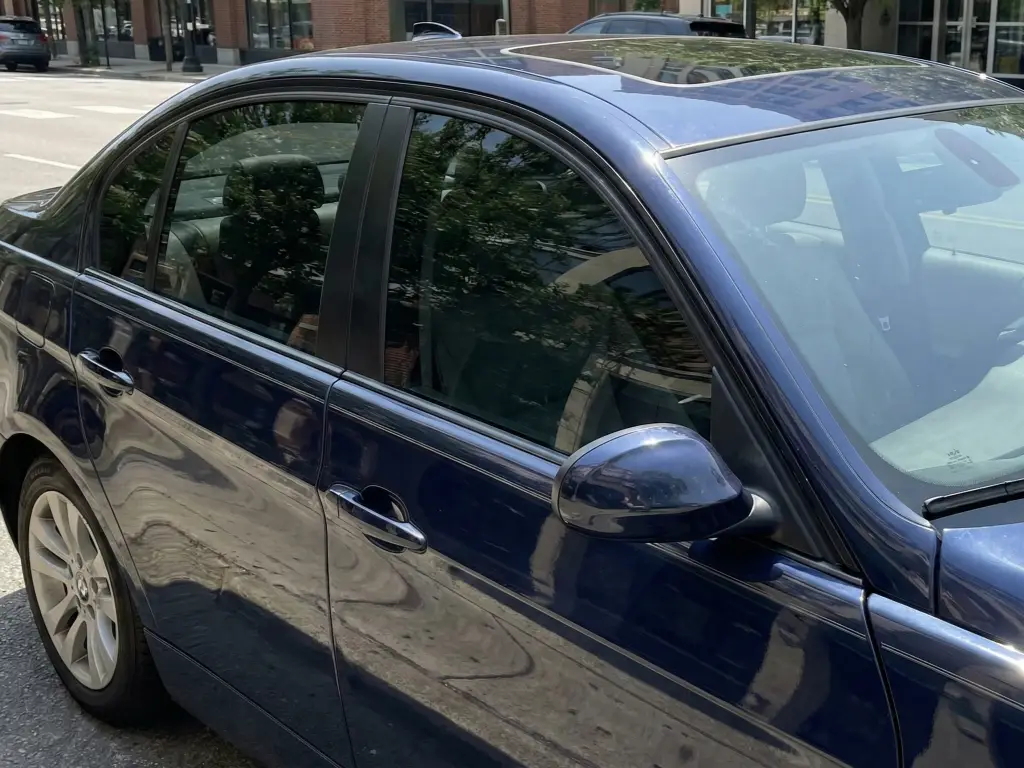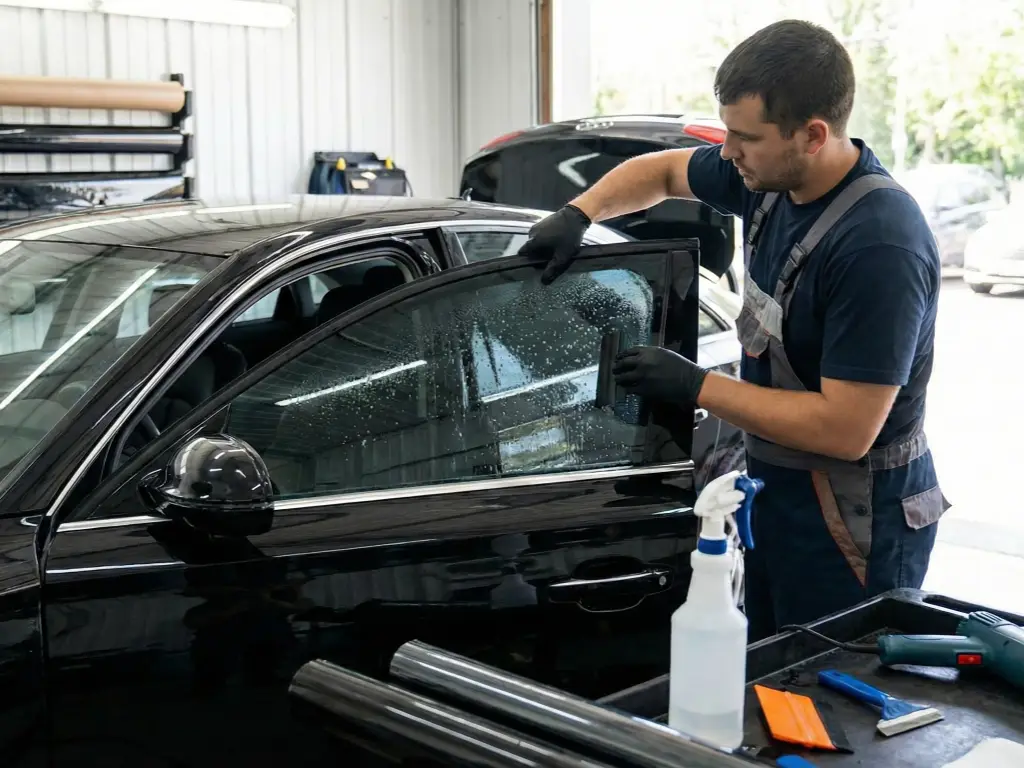Average Car Wrap Time: Quick Guide to Installation Duration
As you picture a car wrap as a sleek new paint job for your vehicle, I’m sure a million and one thoughts crowd your head. “What are the steps?” “How will my vehicle look when it’s done?” And of course, “How long will this take?” Generally, you can expect most vehicles to take around 1 to 3 days for a wrap to be installed. However, it is prudent to note that wrap installations take time to get done correctly; they are far from instant. This time trend is more of a range, as different models and types of wraps can alter the final estimate. Realistically, this care wrap estimate can easily fluctuate based on model specifics and available wrapping materials. For those who wish to get a full or partial wrap, it is always good to have an idea of time for planning purposes.
In-depth Analysis: Factors Affecting Car Wrapping Time
The time it takes to complete a car wrapping project is not predetermined, as it can be modified through a variety of different factors. Knowing and understanding these aspects will assist in formulating a more attainable plan. Let’s analyze the most important factors that determine the time spent on the vehicle wrap process:
Vehicle Size: Larger Cars, Longer Wrap Time
A car’s physical dimensions and size are the most important factors when determining how long it takes to wrap a car. Consider it as crafting a suit: more fabric equals more effort. A small and compact car has a smaller surface area and less complex curves compared to larger SUVs or full-sized trucks, meaning they will take significantly less time to wrap. In contrast, larger vehicles like SUVs and trucks have greater surface areas, which equates to more materials, contours, and consequently, time. To better illustrate this point, consider the disparity between wrapping a Mini Cooper and a Cadillac Escalade – the task becomes exponentially larger when the vehicle increases in size. This time per vehicle is important for business owners that have a fleet of vehicles for logistical planning purposes.

Full car wrap or partial wrap
When it comes to the size of the vehicle, scope of the wrap is an equally important consideration. A partial wrap, like the hood and roof only, is a lot easier than a full wrap, which can take a significantly longer amount of time. If you also wish to put a racing stripe or roof wrap on your car, those would also take less time than a full color change wrap. The more coverage is done, the more labor hours it will take. Even a half wrap that covers only the sides of the vehicle will take less time than fully wrapping the entire vehicle.
Wrap Design Complexity: Custom Designs Take More Time
Selecting a more intricate wrap for your car will require a more considerable investment of your undivided attention. Take, for example, a simple single colored vinyl wrap versus a multicolored, multilayered, and intricately detailed wrap with color shifting graphics and a multicolored shifting film. The difference in the complexity of these two designs is immense and requires significantly more time to be shifted toward the process of alignment, matching, printing, and prep work for the design. There is a monumental difference between a basic color matte wrap versus a satin accented camouflaged wrap, the latter requires a significantly longer time to install. As with any other elaborate artwork, complex design logotypes require careful and extensive handiwork. Thought must go into the process, particularly when unique features such as custom text are involved that require deep consideration.
Technician Skill Level: Experienced Pros are More Efficient
The above-trained installer technician’s skills have a major bearing on the car wrap’s productivity and quality. Experienced installers are prepared customers, and through years of practice, they are more than capable of overcoming and wrapping blends efficiently and swiftly. For instance, they know how to use adhesive properly, it’s a tough contour to work with, and customers have problems they need to solve. A good installer, an expert, can easily wrap a vehicle within less time than a novice will take and with better quality, bringing in greater satisfaction to the vehicle owner. It’s like comparing a professional chef and a cook making the same elaborate dish and failing – the difference is experience and skill combined, saving in time and money for future changes.
Type of Car Wrap: Different Materials, Varying Processes
The time required for installation will also vary due to the kind of vinyl wrap you choose. There are standard cast vinyl wraps, carbon fiber wraps, and even chrome wraps which all have differing levels of conformability and different methods of application. For thick, more complex films like the Paint Protection Film, the use of heat and stretch might have to be more controlled, which increases the time needed for the labor. In particular, matte wraps are more difficult to apply than gloss films. Different properties of a material can modify how the installation is done, how long it will take to complete this, and how optimal the result will be.

Car Wrapping Process Breakdown: Time Allocation for Each Step
In order to break down the time estimate associated with car wrapping, let’s look at the general steps involved.
- Initial Consultation and Design Phase (1-2 hours): This phase includes conversations about your designs, material choices, and the overall approach to completing the piece. Custom designs usually require more back and forth communication and approvals, thus lengthening this phase further. During this phase, some companies provide free estimates which aid vehicle owners during budgeting.
- Vehicle Preparation (4-8 hours): Wraps succeed or fail based on the degree of detail that is put into the wrap. Deep cleaning, which includes several stages, is invariably needed to fully wash the car. A secondary cleaning stage may be needed for older or more dirty vehicles. In addition, parts like door handles, mirrors, and headlights might need to be removed, which increases prep time. Fixing minor dents at this point will improve the final finish, making it a smoother and more attractive option.
- Vinyl Cutting and Trimming (2-4 hours): Whichever application method you decide to go with, the selection of vinyls always comes pre-assembled. If you are making pre-designed kits, then they will take longer and require intricate work to sun face.
- Wrap Application (8-24+ hours): This step is the most labor intensive. Installers individually lay the vinyl panels, using heat guns and squeegees to mold the material to the vehicle’s shapes. With the rough edges defined and smoothed over, the installer faces the most challenging part of this phase – ensuring smooth and bubble-free finishes. Here, the time needed greatly varies depending upon the vehicle’s size, design complexities, and the skill levels of the installers.
- Post-Heating and Finishing (2-4 hours): In this phase, the wrap is post-heated to set the adhesive and make certain of durability for the long run. Sealing the edges, while making any necessary excess trimming and adjustments, is another vital component of this phase as it focuses on perfecting the final look whilst making the wrap long lasting against UV rays.
- Quality Inspection (1-2 hours): This inspection aims to round up any imperfections in the wrap, confirming it meets quality standards in relation to covering or adhering the surface. Documenting the transformation of the vehicle by taking images of the finished work gives a sense of accomplishment.
The listed time ranges are estimates, but they do show that wrapping a car is not as easy as it seems. It is a very sequential, multi-stage procedure that requires time, effort, and skill. Working with the right wrap company can make your vehicle modification journey much more efficient.
Why High-Quality Car Wraps Are Worth the Wait: The Value of “Slow and Steady”
Given how instantly satisfied modern day consumers have become, the waiting period of a few days for a car wrap might require some adjusting. However, when it comes to vehicle aesthetics as well as paint protection, slow and steady is the way to go. Speed reading a classic novel; sure, the outcome could be considered a success, but there is so much being missed in the process. A high quality wrapped vinyl is no doubt a cosmetic enhancement, but in a way, it is also an investment towards your vehicle’s beauty, worth, and protection. Just as a tailored suit requires time for the perfect fitting, the same goes for car wraps. There needs to be adequate time in order to achieve a flawless finish.
| Stage | Description | Estimated Duration |
| Preparation | Thorough cleaning, clay bar treatment, degreasing to ensure vinyl adhesion | 4-8 hours |
| Application | Panel-by-panel vinyl application, conforming to curves, eliminating bubbles | 8-24+ hours |
| Post-Heating & Finishing | Setting adhesive, sealing edges, final adjustments for durability | 2-4 hours |
Preparation steps are equally important, just like trying to build on a weak foundation builds towards flaws and lower durability of the wrap. A skilled hand is required to navigate the curves so that the wrap can be seamlessly finished. The wrap then needs to go through a post heating phase, which solidifies it and guarantees durability. Enduring a longer installation process is not always a bad thing. More often than not, it implies that the installer is putting quality over speed. An excellent car wrap like fine wine appreciates with time; transforming your vehicle into a masterpiece requires it to undergo a slow and steady approach.
Flexippf Advantages: Efficient & High-Quality Car Wrap Solutions

If you’re looking for a car wrap that offers speed without sacrificing quality, look no further than Flexippf. With 19 years in the industry since its establishment in 2005, our processes have enabled us to maintain quality while enhancing speed. We efficiently manufacture stock items within 1-2 days and smaller orders are often fulfilled the same day. Additionally, we offer rapid customizations; small batch orders are completed within 7 days, and standard orders are fulfilled in 2 weeks.
In addition to speed, we supplement our services with installation guides, videos, manuals, and other after-sales services. Our factory-direct model offers flexible pricing, making trial orders affordable, alongside an already competitive pricing structure. Our vinyl wraps offer flexibility too, as they can be used as architectural films. We have no doubt that you’ll be satisfied by the vehicle wraps in quality and time frame when you choose Flexippf.
Car Wrap Time Planning Tips: How to Efficiently Schedule Your Wrap Project
To ensure your vehicle is transformed on time, proper planning is essential when designing a car wrap. Here’s how to get the most out of your plan to save the most time:
- Book in Advance: If you know popular shops get busy, order as early as possible so you don’t miss the deadline you have set. Most shops need to be contacted a while in advance to get the quotes.
- Factor in Prep Time: Check if the time given to you in the quote is the final amount or is there any prep work included, if it isn’t included, add an additional half to one day, more time means the car is in better condition and needs less attention.
- Communicate Your Timeline: Let the shop know your deadlines as they can estimate how to schedule the work. Even if the shop knows how to control expectations, there is no guarantee that sped up service comes without issues.
- Inquire About Express Services: If you are time constricted, paying for faster service might be worth it, but you will most likely get rushed service so there will be issues.
- Schedule During Off-Peak Times: If you know any particular hour or day is less busy, that is the best time to get your wrap done as they will be able to provide faster service.
- Prepare Vehicle Before Drop-Off: It is simple but washing the car before dropping it off means there is less to be done when it is dropped off so all together you save time.
- Understand Design Complexity Impact: Designing simpler wraps means that they can be put on the car faster. Even if a little more prep work needs to be done, go over designs with the shop to help with time estimates.
Wrap providers need to be spoken to more often regarding clear communication so you can eliminate as many issues from the wrap.
Conclusion: Transform Your Vehicle with Efficiency and Quality

Knowing the time it takes to wrap a car helps you plan properly. Certain things, such as the size of the vehicle and the level of detail in the wrap, do play a part in how long it will take; however, the skill of the craftsman remains the most important aspect of the work. Those wanting to get the best results in the shortest time possible need to work with someone who understands what they need. Go with someone who meets your requirements in terms of timeframe and output so that the vehicle is transformed and looks its best without wasting too much time. Without a doubt, vinyl wrap is the best alternative for changing the appearance of a car without having to deal with the consequences of paint.




